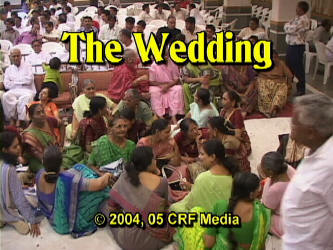|
|
|
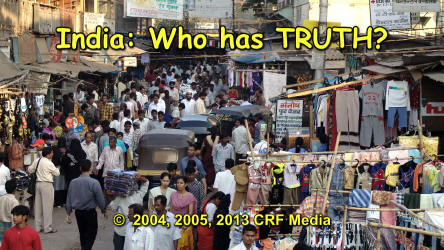 00-13 India: Who has TRUTH? (10:28) Mumbai is called the Great City. … It is in Mumbai’s striving to become an economic powerhouse and a world-class city that a working relationship is formed among the various religious, cultural and ethnic groups. It is a heterogeneous collection of 17 million people who live and work in an extremely close environment. But, … Mumbai is not a melting pot for these peoples. Instead, … each group tenaciously forms a seemingly impenetrable cocoon around themselves, their beliefs, and customs. The Hindu concept of caste -- of being unequally born -- permeates all, whether Hindu, Muslim or other religious order. The hard shells that have formed around these various groups makes it very difficult for them to understand the love of the one true God and that salvation comes by grace and not by works. |
|
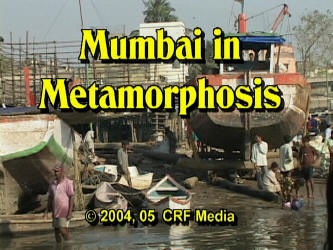 01 Mumbai in Metamorphosis (3:06) Mumbai was once a collection of small Koli fishing villages. Today, … with 17 million inhabitants, … it is India’s largest city and its richest city. It is wealth and influence that fuels its metamorphosis. The transformation continues throughout the city as new office buildings and apartments replace old and unsightly structures. |
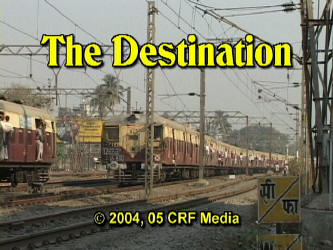 02 The Destination (9:37) Every day more than 6 million people travel through Mumbai on the commuter train system. On the buses, more than 3 million commuters pack onto the system to move through an already congested city. In Mumbai, it seems that everybody is going someplace … that each person has their own destination … a destination determined by their caste … by the station in life to which they were born. |
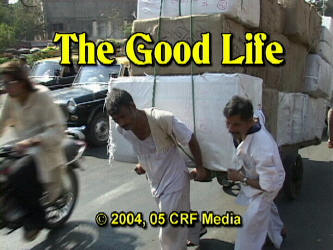 03 The Good Life (7:07) In 1950, the Indian government decreed all of its citizens equal before the law … in effect outlawing the caste system. Nevertheless … caste has not gone away. Its ugly head is ever present in Indian society. The caste system is still apparent in the lifestyles of the wealthy and influential. The rich and powerful believe they are of a higher class, of greater worth than those around them. |
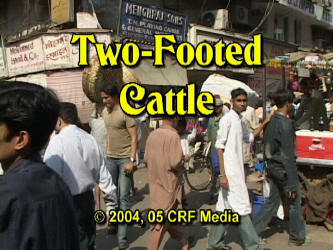 04 Two Footed Cattle (3:29) According to the oldest and most sacred of the Hindu scriptures, … man was not created equal. Instead of equality, four basic levels of man were created. The Hindu scriptures called the lowest caste, … “two-footed cattle” … and even today the work of the poor is the work that is done by animals or machines in other countries.
|
|
|
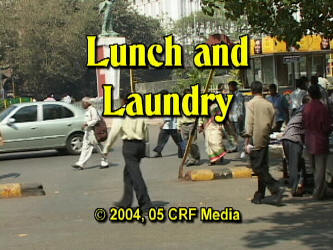
06 Lunch and Laundry
(3:37) |
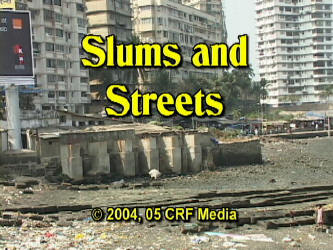 07 Slums and Streets (6:05) In spite of being the financial capital of India, more than half of Mumbai's population lives on the streets or in slums. … Families live in abject poverty in the massive slums of Mumbai. … Regardless of whether life is on the street or in a slum, they look to their gods in hope. … Daily, they ask which one of their millions to appease, … which will bring food to their hungry family that day? … Which will keep them from illness? |
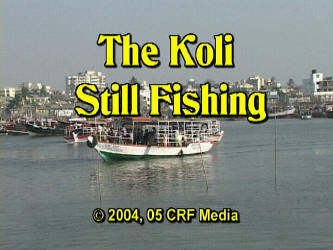 08 The Koli – Still Fishing (7:44) Scattered along Mumbai’s coastline, … sandwiched between multi-storied flats and commercial buildings, … are Koli fishing villages. In existence since the city began, they are a significant link in the history of Mumbai. |
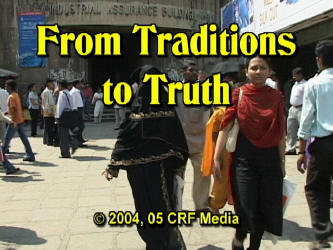 09 From Traditions to TRUTH (9:56) Traditions, languages, ethnicity and religions abound in India. Mumbai, the most populous city of the country with 17 million people is much the same. With nearly 100,000 people per square mile, these diverse ethnic, religious and language groups must live and work side by side. People in Mumbai need to hear the truth of the Gospel and in a way that is relevant to their own traditions, culture, language ethnicity and social status. |
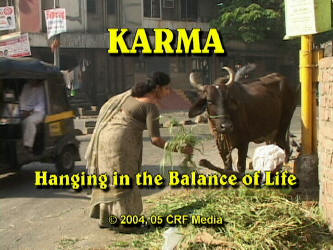
10 Karma-Hanging in the Balance (6:04) |
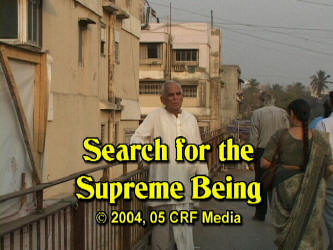
11 Search for the Supreme Being
(15:36) |
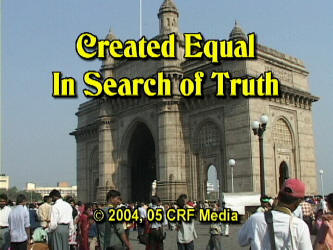 12 Created Equal-In Search of TRUTH (7:15) Mumbai is home to multitudes from across India. People from nearly every culture in the country find their residence somewhere in Mumbai. All of these cultures are impacted by the now outlawed caste system by which they are affected in every way, including employment, marriage, social status and, … much more deeply, … religious convictions, their morality and their collective political sensibilities. |
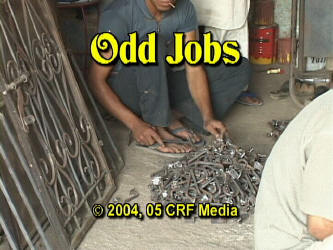
13 Odd Jobs
(5:14) |
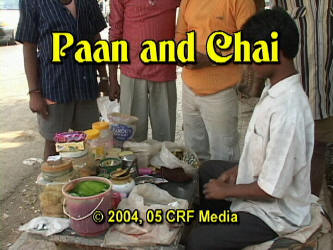
14 Paan and Chai
(3:05) |
|
Statement About Video Use U.S. copyright laws protect all media material produced by CRF Media. Posting the videos on alternate web sites is NOT ALLOWED. Fragmentation of the material is STRICTLY FORBIDDEN. THEY ARE NOT TO BE USED IN ANY WAY FOR COMMERCIAL APPLICATIONS. |
|
 13 India 2004 15 Chapters (103:32)
13 India 2004 15 Chapters (103:32)
